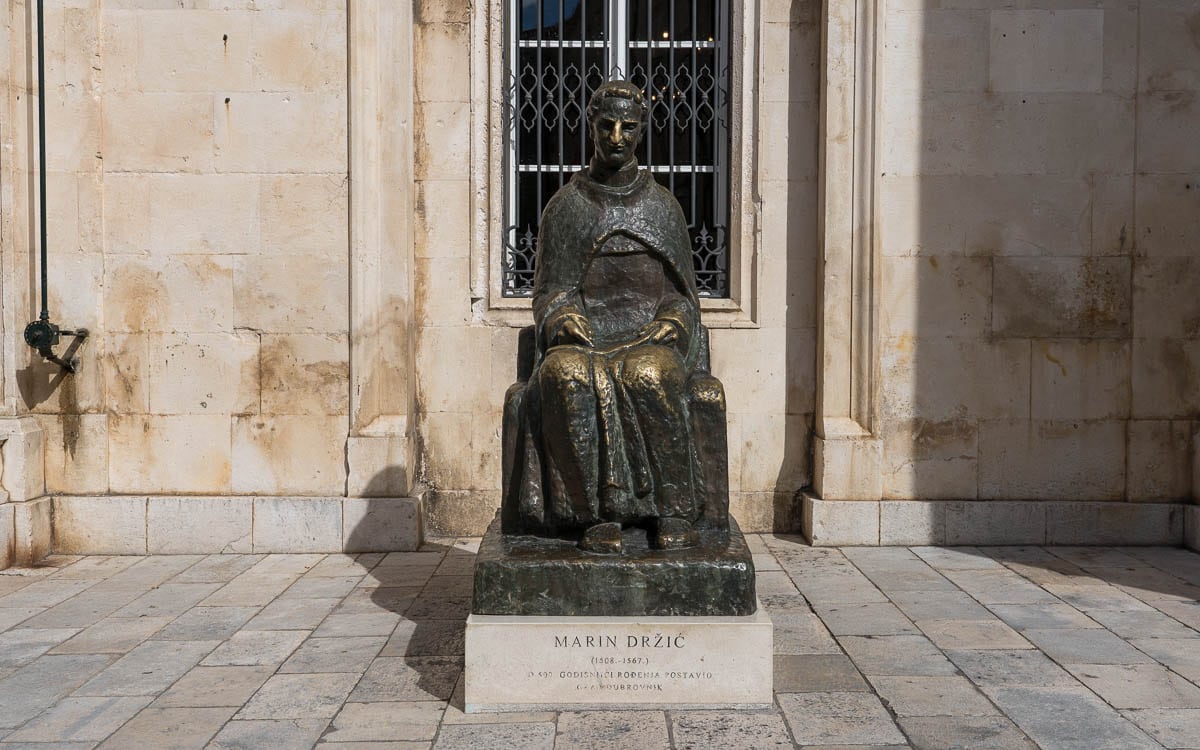
At the eastern end of the Stradun, across the street from the Church of Saint Blaise, is the bronze Marin Držić Statue. At the bottom of the seated statue is a plaque that reads “MARIN DRŽIĆ (1508-1567) – On the occasion of the 500th anniversary of his birth – City of Dubrovnik.”
Držić (1508-1567) was a famous Croatian playwright and writer often called the Shakespeare of Dubrovnik. Many regard Držić as one of the most important Renaissance playwrights and prose authors in Croatian literature.
Before being relocated to the front of the Marin Držić Theatre, the statue stood in Babin Kuk, a suburb northwest of Old Town.
Recently, tourists have started rubbing the bronze statue’s nose, causing a shiny spot. They believe in the legend that rubbing the nose of the statue or sitting in Držić’s lap brings good luck.
Marin Držić Statue Information
Hours
24 hours
Admission
Free
Address
Ul. Pred Dvorom 2, 20000, Dubrovnik, Croatia
GPS Coordinates: 42.64051,18.11058
Map
Nearby Sights
Church of Saint Blaise
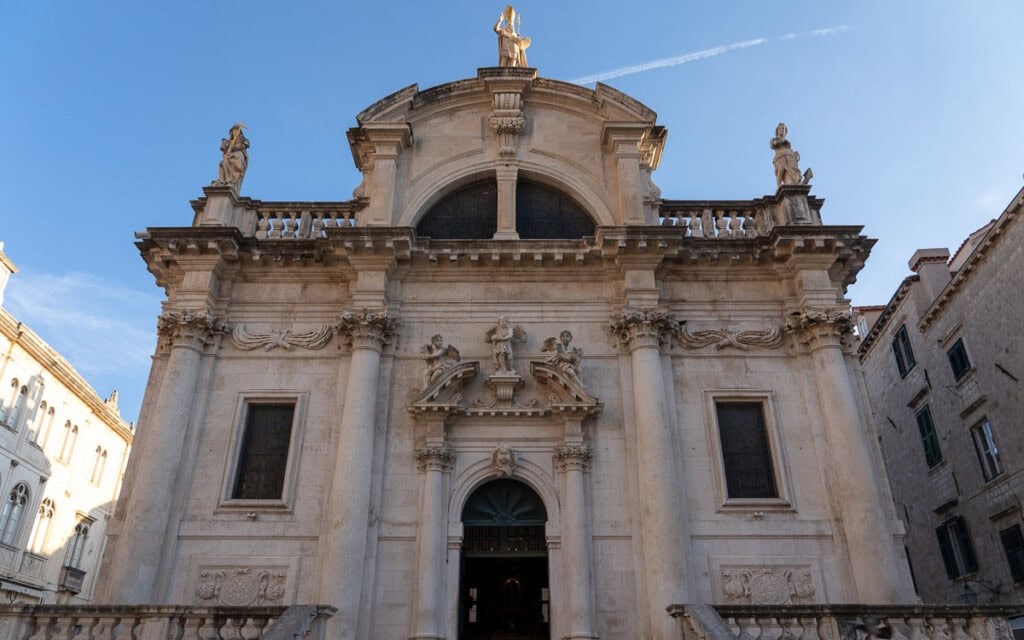
The Church of Saint Blaise, located on the eastern end of Stradun, is one of the most iconic and famous landmarks in Dubrovnik, Croatia. The church, dedicated to Saint Blaise, the patron saint of Dubrovnik, dates back to the early 18th century. A Romanesque church stood at this location from the 14th century until the middle of the 17th century.
Small Onofrio Fountain

Located at the eastern end of Stradun, off Luža Square, is the historic Small Onofrio Fountain, an ornately decorated octagonal fountain. The small fountain, often overlooked by tourists, played an essential role in the history of Dubrovnik's water supply. Italian architect Onofrio della Cava designed and constructed the fountain between 1440 and 1442.
Orlando's Column
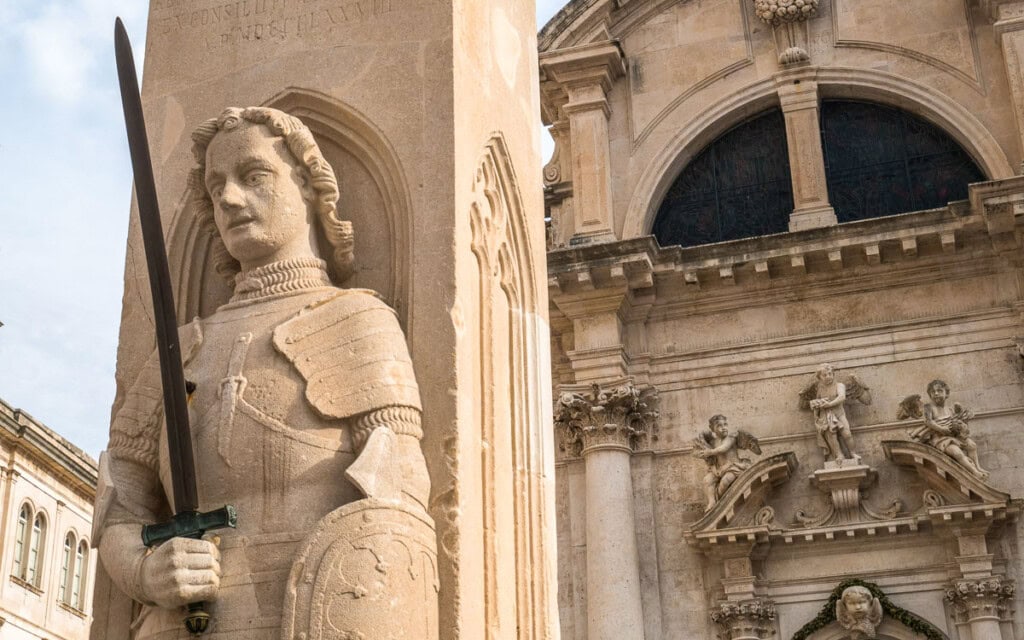
In the center of Luža Square, on the eastern end of Stradun, is Orlando's Column, a historic stone monument dating back to 1418. Carved into the statue is a heroic medieval knight who defended Dubrovnik from invaders. In 1418, Bonino di Jacopo, an Italian master sculptor from Milan, built the column with the help of local sculptor Antun Dubrovčanin.
Jesuit Stairs
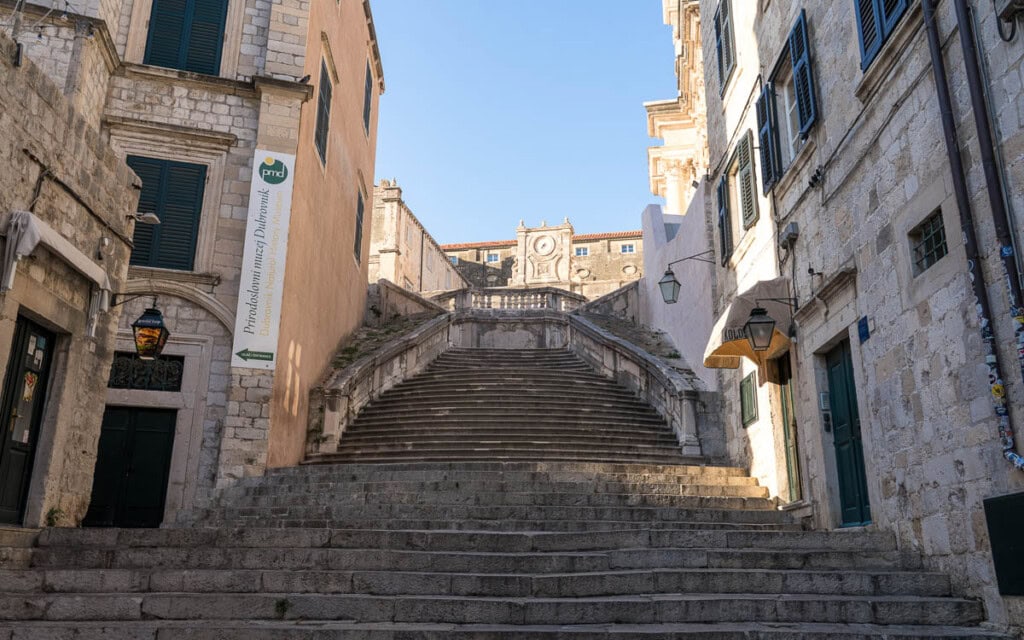
The Jesuit Stairs are a grand Baroque staircase that connects Gundulić Square to the Church of St. Ignatius in Old Town Dubrovnik, Croatia. The Church of St. Ignatius, at the top of the stairs, is an old church that once belonged to Collegium Ragusinum, a Jesuit college in Dubrovnik. The stairs are considered one of the city's most notable examples of Baroque architecture.
Stradun
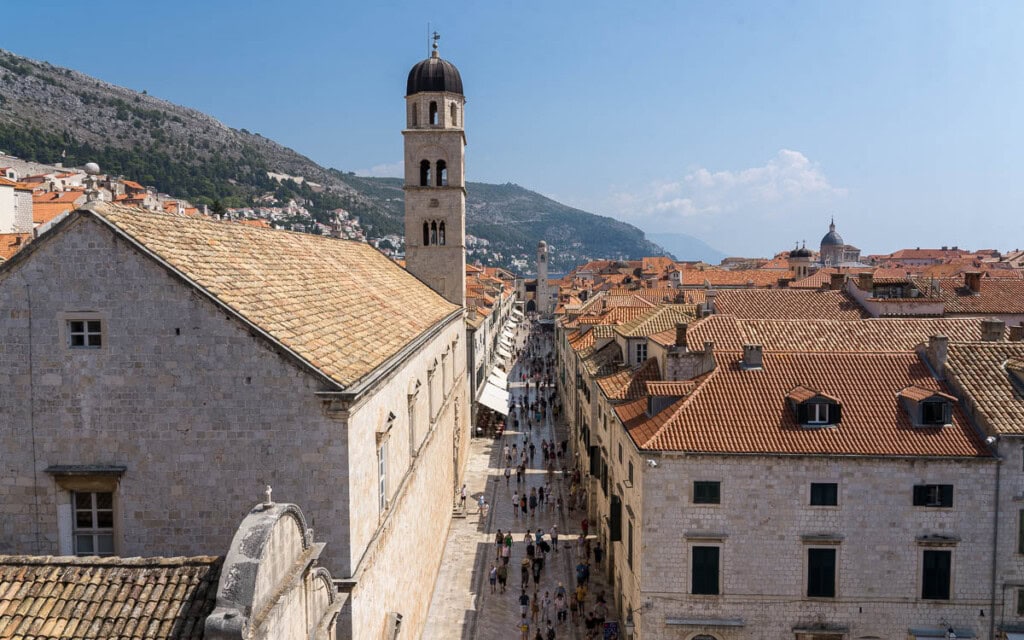
Stradun, officially Placa, is Dubrovnik's main street, stretching 300 meters from Pile Gate in the west to Luža Square in the east. Along the limestone-paved street, which cuts through the heart of Dubrovnik, are many historical sights, restaurants, bars, cafes, and shops. Along Stradun, you will find some of Dubrovnik's most important sites, including the Large Onofrio Fountain, Sponza Palace, the Church of Saint Blaise, and Dubrovnik Bell Tower.
Ploče Gate
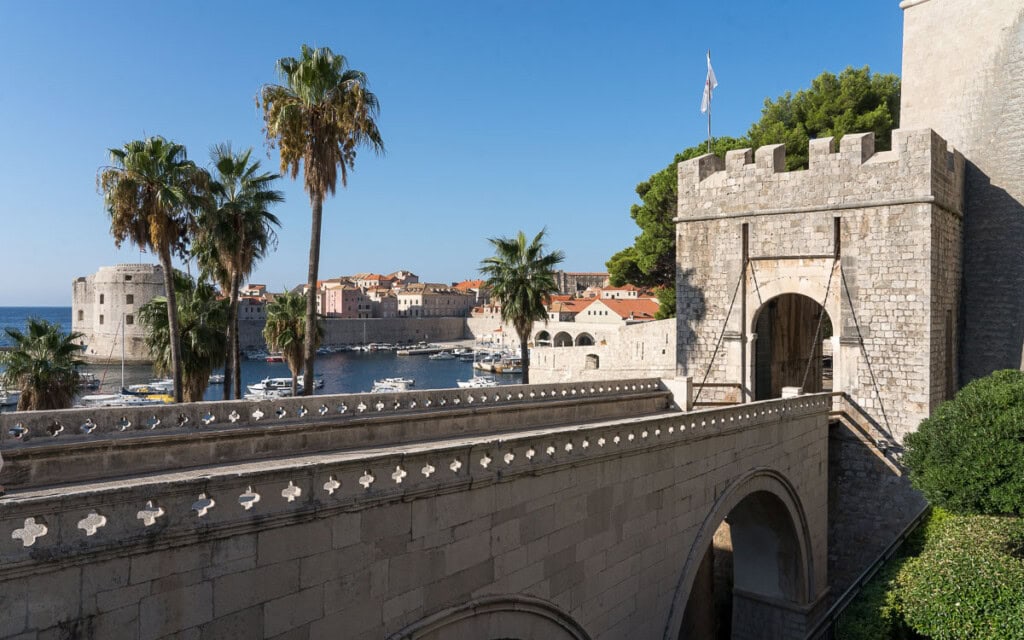
Ploče Gate is a 14th-century Romanesque-style gate that serves as the entrance to Dubrovnik's Old Town and its main street, Stradun. While Pile Gate is the main entrance on the western side, Ploče Gate, also known as Vrata od Ploča, once played a key role in the city's defenses and today serves as the main entry point into the Old Town from the east.